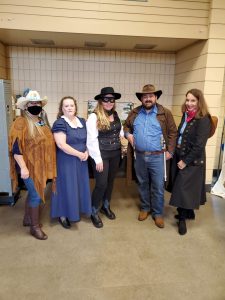 All week the PIO will be away from Gainesville, away from our computers, and away from blog writing. As such I am largely reposting a blog we posted before. You shall have to forgive the less than original content. I know, what could possibly pull us away from the greatest institution on all the land, GO GATORS, keep reading to find out Where in the world is the amazing PIO? (Even better if you read that with the theme song to Where in the World is Carmen Sandiego, you too might be an elder millenial!)
All week the PIO will be away from Gainesville, away from our computers, and away from blog writing. As such I am largely reposting a blog we posted before. You shall have to forgive the less than original content. I know, what could possibly pull us away from the greatest institution on all the land, GO GATORS, keep reading to find out Where in the world is the amazing PIO? (Even better if you read that with the theme song to Where in the World is Carmen Sandiego, you too might be an elder millenial!)
This week the PIO is in Savanah, Georgia for the National AAPSE meeting. I realized I have not really discussed just what my title PSEP, really means. So, stick around and we will decode a few of these acronyms and find out What is a PSEP.
The meeting I am attending this week, (AAPSE), is an organization I have discussed before, and it brings together PSEPs from across the county. So, What is a PSEP and what do they do? First let’s decode the letters, PSEP. These letters represent, Pesticide Safety Education Program and is interchangeable for a program or a person that does pesticide safety education. This can take many different forms and we will discuss some of the things PSEPs might do, but the list below is NOT exhaustive nor the same all across the country, but certainly represents the theme many programs follow.
What Do We Do?
In many states the PSEP, both the people and the overall program, are housed at a University, typically the land grant University for that state. This was supported and mandated by several federal agencies way back at the formation of EPA and the requirements surrounding pesticide registration and licensing/certification. It is important to note this is NOT enforcement, laws and regulations, or providing licenses in the state. Each state must have their own plan coordinated with EPA (Environmental Protection Agency) on all the state laws a regulations around pesticide use and licensure. State Departments of Agriculture, or other similar agencies write and enforce the rules related to pesticide use in the state. In Florida the agency responsible for enforcement is the Florida Department of Agriculture and Consumer Services (FDACS). Both the state and PSEP tend to work very closely together, but there is a clear separation of duties. This separation is critical, because it allows applicators to ask PSEPs questions, without fear of enforcement action. PSEPs are there to EDUCATE and inform, not enforce.
Although PSEPs do not set rules and regulations, they are oftentimes an important part of the overall licensing process. In Florida, and many other states, the PSEP handles delivering pesticide license testing and certification. In Florida the rules for proctoring and management of the exams are handled through the Pesticide Information Office and testing provided at county extension offices throughout the state.
More Than Just Testing
Its not just testing, if we expect applicators to pass a test, someone needs to develop and keep the study materials for those tests, as well as writing the test itself. In many states, and here in Florida, this is done by PSEPs. This does NOT mean yours truly has to write, maintain, and develop ALL the manuals and exams. PSEPS ensure that all materials meet proper guidelines and convey the proper information. Our task is to bring together the right team of experts to put together study materials and exams.
As you will know from our previous blogs, passing the exam is only the beginning of the licensing process. There is the initial certification to get your license, then there is recertification to keep your license. Retesting is one option, but most opted for CEUs. PSEPs work directly with county extension faculty to help develop, provide, and support training events to ensure applicators have access to plenty of opportunities to renew their license AND to learn more about pesticide use and safety. Our office has an extensive Online CEU Catalog so you can get training from the comfort of your home.
Beyond the Applicator
Finally, many PSEPs will do public outreach and education about pesticide safety for the public generally interested in pesticide topics. In some states the PSEP will wear more than one hat and have additional responsibilities outside pesticide safety education. For instance some programs will do pesticide safety education and the IPM (integrated pest management) programs out of the same office, oftentimes with the same person. I found on instance where the same person was a PSEP, IPM coordinator and had 4-H responsibilities…that’s a lot of hats.
So, there you have it, we have decoded a few alphabet soup acronyms and hopefully let you into the world I occupy everyday at work. It is a diverse set of things to do, a diverse group of people to work with, and always keeps me on my toes…and I love every minute of it. We are a fun bunch for sure, as evidenced by my themed costumes for trainings down in Volusia County. The first theme is obvious, the other was 80’s Miami, see if you can guess my character! So, What is a PSEP, well I am a PSEP, and I love what I do!
Click To Subscribe
Additional links:
American Association of Pesticide Safety Educators – https://aapse.wildapricot.org/
Land Grant Universities – https://www.aplu.org/about-us/history-of-aplu/what-is-a-land-grant-university/
UF/IFAS Pesticide Information Office – https://pested.ifas.ufl.edu/
Online CEUs – https://ifas-pest.catalog.instructure.com/
IPM Blog – https://blogs.ifas.ufl.edu/pesticideinformation/2021/08/11/ipm-the-struggle-in-defining-a-strategy/
 2
2


